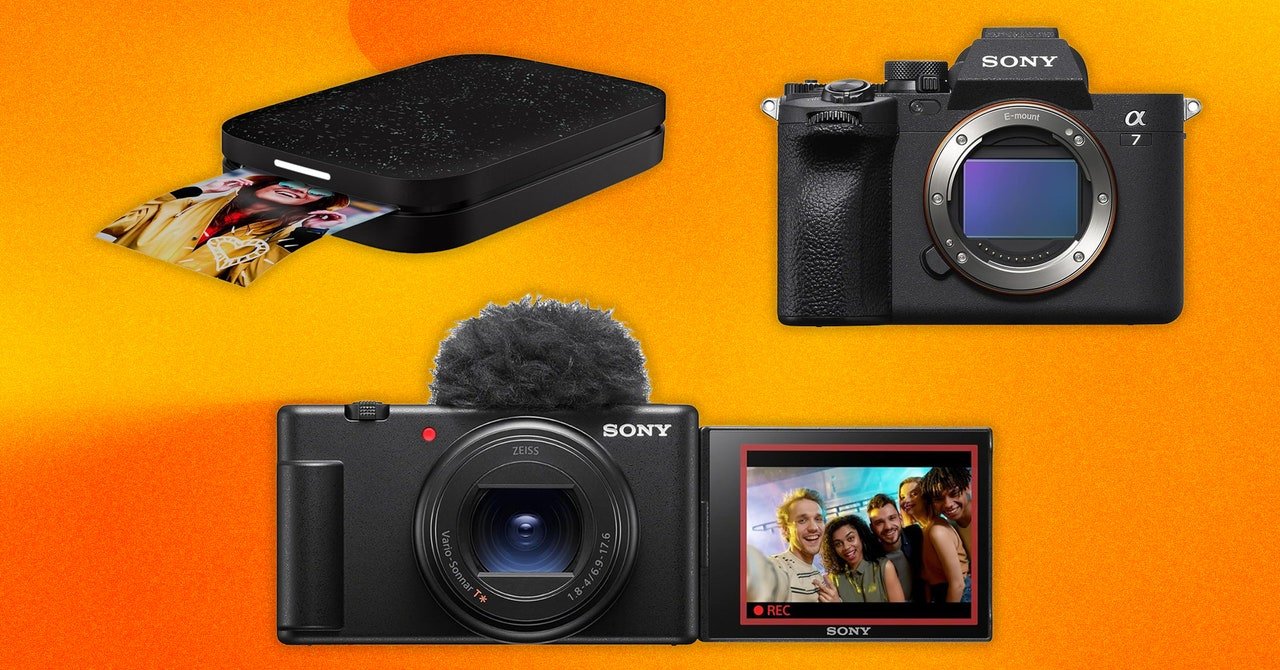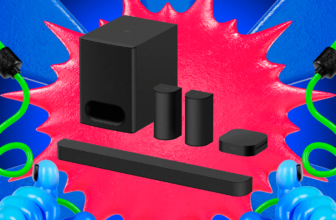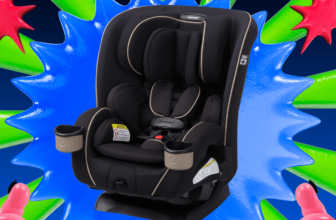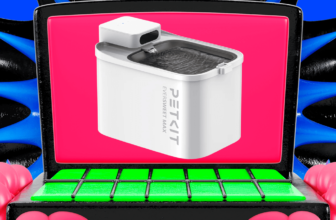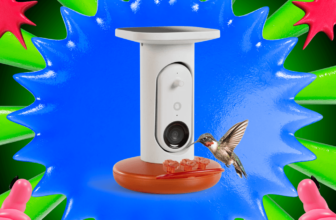

Cases for Your Filters and Memory Cards
What good is protecting your camera if your memory cards and filters get ruined? You won’t be able to take the shot you want! I like these protective cases.
Photograph: Julian Chokkattu
Wandrd Lens Filter Case for $44: I’m always so bad at packing my lens filters. Either I always leave them at home, or I bring the wrong one. When I do bring the right one, I’ve been so lazy that I’ve just tossed it into a crevice in my camera bag. Don’t be like me! I love this hardshell EVA foam lens filter case. When you fill it up with four, it’s a smidge thick, but much more protective than what I used to do. The interior sports a soft-touch lining to keep the glass safe. Now I can finally throw away the annoying puck-shaped holders all these filters seem to come in.
Photograph: Julian Chokkattu
Wandrd Memory Card Case for $34: This Wandrd case also uses a harder EVA foam shell to protect your precious memory cards. It’s still slim but will take up more room in a backpack. You can fit eight memory cards and two SSDs. I could fit my SD and XQD cards with their plastic cover, but the XQD was a much tighter squeeze. I’d probably forgo the plastic cover at that point, and if you do that, everything is easy to insert and take out.
Photograph: Julian Chokkattu
Lowepro GearUp Memory Wallet for $35: Lowepro’s version is a softshell case that will be easier to stow in a backpack, though it’s a little less protective. Also, while my SD cards fit perfectly with their plastic covers, my XQD cards did not—I had to take them out of their plastic covers, and that’s probably fine anyway. It’s made of up to 55 percent recycled fabric, and I also love the high-visibility orange interior.
Check Out These Tech Organizers
Photograph: Julian Chokkattu
Tech organizers are for all those little bits and pieces that can easily get lost in the crevices of your backpack: the microfiber cloth, the SD card, and the spare batteries. Keep ’em all in one spot with one of these.
Nanuk N-Cubik T3 Storage Pouch for $49: Nanuk’s tech pouch will take up a bit of room in your backpack, but it’s the sturdiest pouch on this list. The foam padding makes it almost like a hard case with good protection from everything else in your bag. Inside, there are zippered pouches and pockets galore—plenty to organize cables, batteries, chargers, and more.
Peak Design Tech Pouch for $50: Peak Design’s recently revamped Tech Pouch isn’t a camera bag, but it’s my favorite way to store all the extra stuff I carry—batteries, chargers, cords, SD cards, filters, etc. I fit all that in the nicely subdivided compartments of the tech pouch and then throw the pouch in whichever bag I am taking with me that day. There are plenty of pockets, and some nice elastic accessory loops to organize all your bits and bobs, and there’s even a cable pass-through so you can charge without having to pull out your portable battery. The 400D recycled nylon outside is weatherproof and has a nice, clean design. —Scott Gilbertson
Ekster Tech Case for $60: Ekster’s case is well padded and made from water-resistant 400-denier tarpaulin and polyester from recycled water bottles. It holds its structure without crumpling from other gear in your bag. There are two elastic pouches on one end and a thick, soft divider in the middle, with elastic straps to secure cables. A roomy pouch sits on the other side.
Moment MTW Tech Organizer for $60: This bag will satisfy anyone who carries multiple spare batteries for various devices, several cables, neutral density filters, and solid-state drives. I’ve been using it, as well as the $50 battery organizer, in my bags for some time. The water-resistant 350-denier recycled nylon exterior has held up well, and there’s a nice rigidity that offers structure.
Manfrotto Street Tech Organizer for $35: This one is flimsier, with a thinner synthetic fabric that doesn’t feel as nice as the Moment. It’s roomy, with space for a large battery pack, filters, camera batteries, and Rode wireless mics, but it’s not as easy to neatly organize the gear.
Consider a Camera Cube
If you already own bags you like, consider a packing cube (also called an “insert”) instead of springing for a new camera bag. All you need to do is put your gear into the cube and insert it into an existing bag. These cubes are made for delicate camera gear, so they’re well-padded to protect the jewels of your toolkit. They’re designed for bags made by their respective manufacturers, but you can measure your bag to see if a cube made by somebody else will fit.
Photograph: Julian Chokkattu
Peak Design Camera Cube V2 for $70: Peak Design redesigned its classic camera cube, which now comes in extra small, small, smedium, medium, and large. I tested the smedium size, and there’s ample room to fit my mirrorless camera, a speedlight, and two lenses. There’s good padding and customizable Velcro dividers, and the weatherproof zippered opening folds back enough that you can keep the cube open for easy access to your gear. It’s not a cube I would use as a standalone, but it does the job almost perfectly, and the various sizes make it a good option for a variety of bags. I’m not a huge fan of the 360-degree handle, however, because it’s quite tight and can be difficult to grab.
Ekster Camera Cube for $60: Ekster’s camera cube is on the smaller side—I can fit my mirrorless camera plus a spare lens or two—but there are zippered pockets to store other accessories, which is a nice touch. The padding is thick, and it’s stylish enough to use as a standalone (with hooks to attach a strap). The 400-denier recycled polyester is water resistant too.
Nanuk N-Cubik 13-S for $80: The padding isn’t super thick on Nanuk’s camera cubes, but the exterior has more structure, making sure the cube doesn’t crumple too much. I do like that you can completely remove the zippered cover if you want to leave it open in your bag. The inside is quite deep, with Velcro dividers to keep things separate, but there’s not much else here. Nanuk has a ton of other sizes you can choose from; I also tested the N-Cubik 13M ($100), which can fit a whole lot more gear.
Moment MTW Camera Insert for $60: Moment’s insert is one of the smallest I’ve used, but it’s thin and won’t take up a lot of room in your bag. Its frame is very stiff, and there’s still a decent amount of padding. I like the bright red interior, making it super easy to see what’s inside if it’s dark. You only get two dividers, but they have stretchy pockets, so you can keep smaller items in them. There are aluminum anchors on the exterior to keep it secure, though it’s best used with Moment’s backpacks.
Lowepro GearUp Creator Box XL II for $60: More camera bags need to have bright interiors. The LowePro’s orange liner makes things easier when it’s dark out. You can fit a DSLR with two to three lenses in this 8-liter bag, and use the rear and inner pouches, plus the front zippered pocket, for some smaller items. The padding is pretty decent all around. Toss it in a carry-on or backpack, or you can grab an accessory strap and carry it by itself. The nylon material it’s made of makes it decently water-resistant, though I’d limit your excursions to light rain.
Wandrd Camera Cube for $64: This cube is better for backpacks with side access. It’s made of 420-denier Robic nylon and has a weather-resistant coating. You get five thick dividers you can customize via the Velcro lining to fit around your equipment, and three straps to hold everything down. The Essential lineup comes in three sizes, but there are Essential and Pro sizes too, and each also has Plus or Deep variants if you need more room.
Evergoods Civic Access Pouch for $75: I often use different bags and move my camera gear between them. This was cumbersome until I discovered the Evergoods Civic Access Pouch, which fits all but my longest lens. My preferred lens setup is pretty simple: two primes; a Nikkor 28 and 50 mm; and a Sony 16-35 mm for video and ultrawide shots. All of that fits neatly in the Civic Access pouch. The top zippered compartment holds stuff like cleaning tools, extra memory cards, card reader, filters, and half a dozen batteries (because Sony’s A7 series cameras chew through batteries like a 2-year-old with a Popsicle box). There’s also an extra zippered pouch in the main compartment that I don’t use but that could hold relatively flat stuff. The Civic Access is well-padded, though I keep my prime lenses in koozies for additional protection. The outer 420D nylon with PU coating is weather-resistant, keeping water at bay in light rain. The top handle means it’s easy to carry and move between backpacks, and the bright interior nylon (210D HT) makes it simple to find what you’re looking for, even at twilight. —Scott Gilbertson
Try a Camera Strap
If you’re only carrying your camera, skip the camera bag! Get a strap instead. It’s a safe way to keep your camera secure to your body, so if it fumbles through your fingers, it won’t hit the ground. Ditch the strap from your camera manufacturer; these alternatives are better.
Photograph: Peak Design
Peak Design Leash for $45: This is the best camera strap I’ve used. Attach one side of the Leash to where you usually attach a camera strap, then stick the other end to the bottom tripod mount via the included anchor mount. This allows the camera to droop the lens-down on your body, meaning the grip is the first thing you’ll grab when reaching for it. It doesn’t feel awkward, and the seatbelt-style strap swiftly glides across any outfit. There’s a new coyote color option too!
Hex Ranger Camera Wrist Strap for $30: This is my favorite wrist strap. It’s made of nylon, and there’s EVA foam padding that makes it comfy on the wrist and doesn’t feel constricting. It’s easy to attach and detach from the camera via the Hypalon connector, which is rated to hold 80 pounds. But the best feature? If you let go of the camera, the strap automatically fastens; grab the camera again and it automatically loosens. No need to fiddle around with fasteners.
Peak Design Slide Lite for $60: Peak Design’s smaller camera strap is just as comfortable and well-made as the Leash, and it can be worn as a sling around your neck or over your shoulder. It’s two-sided with a textured grip on the underside that keeps it from sliding around when you’re walking.
Peak Design Capture Clip for $75: OK, this isn’t a strap, and it requires a backpack, but it’s one of my favorite ways to carry a camera when I’m covering an event. Attach the clip to your backpack’s shoulder strap and attach the anchor to the bottom of your camera. Then slide this anchor onto the Capture clip and voilà, your camera is now securely resting on your backpack arm strap, hands-free. Push a button to quickly slide it out. I’ve used this system at major trade shows like CES, and it makes it super easy to snap photos without digging inside my backpack for my camera.
Other Good Camera Bags
Photograph: Julian Chokkattu
We’ve tested a lot of camera bags. Here are others we really like but have been eclipsed by our top picks.
Long Weekend Morro Convertible Backpack for $150: I strongly considered replacing our top backpack pick, Brevite’s The Jumper, with the Morro. They’re very similar in style and organization, with the Morro offering an extra pouch and, in my view, a nicer design (especially in the moss color). This is still an excellent backpack that doesn’t scream camera bag, and you get front and side access to your gear (make sure you add the Camera Cube bundle, which adds an extra $70 to your purchase). It’s lightweight, can fit a 16-inch laptop, and is made of water-resistant materials with a two-layer waterproof coating. My only gripe is the camera cube is an awkward fit, jutting out a bit at the openings. If the company altered it slightly, this would be my favorite camera backpack at the sub-$200 price.
Nanuk Backpack N-PVD 30L for $300: If you carry around a drone, this is a nice backpack with a compartment at the very top that can easily fit your drone kit. It’s a well-padded and structured bag that comes in several sizes (I tried the 30-liter version), and you can fit a tripod in the side pocket and hold it securely with a strap. There’s an easy-to-reach side pocket for quick camera access, but I don’t love how you access the main compartment. It’s on the rear of the bag, and the shoulder straps and waist straps constantly get in the way, which is just a bit annoying. Once inside though, there are padded sleeves for laptops and tablets and zippered pouches for extras. The main area is cavernous, so you’ll have to do some Tetris with the included Velcro dividers to lay everything out neatly.
Clever Supply Camera Sling for $224: I love the look of this waxed canvas bag and its flourishes of full-grain leather. It’s a classic and classy design that makes me happy whenever I head out the door with my camera in tow. It’s comfy and easy to adjust the shoulder strap, and there are three grab handles on the top and sides so you have a lot of carrying options. It can fit my Nikon Z 6, two small lenses, and a compact tablet. (Smaller than 11 inches; it didn’t fit the OnePlus Pad.) There’s a zippered pouch inside to store storage cards and a zippered pocket on the exterior for cables. My main gripe is that opening the main compartment sometimes requires two hands—the zipper gets stuck on the corner so I need my other hand to keep the bag in place. I wish the front pocket also had more give; when the bag is full, it feels too tight to put anything in there.
Peak Design Everyday Backpack for $280: This is the slightly bigger and more feature-packed version of the Everyday Zip we recommend above. Instead of a zipper that goes all the way around, you have two zippers for each side and a flap at the top that you can use Peak Design’s MagLatch system to cinch up if you don’t need the extra space up top. There are various pouches for organization throughout, as well as side pockets that can hold a compact tripod. I tried the 20-liter model, but if you have a lot of gear, you may want to spring for the 30-liter.
Photograph: Peak Design
Peak Design Everyday Sling for $160: The Everyday Sling has long been one of my personal favorites for everyday carry or heading out for a day of shooting. It comes with flexible dividers you can adjust or remove, depending on how much organization or storage space you need. It comes in 3-, 6-, and 10-liter sizes. The 10-liter version has room for a 13-inch MacBook Pro, a charger, and my FujiFilm X-Pro 2 camera. If you need room for additional lenses or a larger camera body, you might want to forgo the MacBook; it can get a little tight in there. —Jaina Grey
Hex Backloader Backpack for $200: I usually prefer bags with side access, but I’ve been quite happy with the Hex Backloader. Yes, you need to take it off your back to access all your gear, but an access point at the very top makes it easy to quickly pull out the camera. The main compartment in the back is really spacious and is outfitted with tons of Velcro dividers, so you have lots of room for customization. There are organizational mesh pouches and pockets galore, a padded section in the front that can fit a 15-inch laptop, straps on one side for a tripod, and a pouch on the other for a bottle. It’s super comfy to carry around, sternum strap and all.
Shimoda Explore V2 25 Backpack for $372: I like this backpack, but it’s a touch too expensive. It’s supremely comfortable to carry, thanks to its extensive padding, and the whole thing is water-resistant to keep your gear safe. I was able to stuff it with a surprising number of items despite its relatively slim size (all of which you can access from the rear), including a tripod in its side deployable pocket that you can cinch tight with a strap. There’s side access to the camera, tons of pockets for organization (I love the little pouch on the arm straps), and a padded sleeve for a 13-inch laptop.
Wotancraft Scout Daily Camera Bag 9L for $299: If you’re after a stylish messenger, I’ve always liked the designs from Wotancraft, and the Scout is no different. It’s made of durable Cordura with some cowhide leather thrown in for the straps on the flap. The main compartment is spacious and separated by sturdy dividers, along with a padded laptop pouch that can barely fit a 13-inch MacBook Air. Two pouches in the front can loosely carry some small items, but there’s not much in the way of organization here. There is a luggage pass-through and a rear zippered pocket, but no side pockets and no easy way to attach a tripod.
Photograph: ONA
Ona The Bowery Compact Messenger Bag for $229: I’ve owned this bag (the black waxed canvas version) for seven years, and it remains in great shape. It’s attractive and perfect for short outings, with plenty of padding and a divider to keep your gear protected. You’ll only be able to fit a camera and one extra lens. There’s a pouch on the back I’ve used to stow a Nintendo Switch or a Kindle, and I shove my cables, batteries, and SD cards in the pouch on the front. Unfortunately, the two side pockets are too tight to fit anything bigger than a pen or a microfiber cloth. One perk? You can quickly detach the strap to turn the Bowery into a camera cube for a bigger backpack. It comes in an array of colors and materials.
Tenba DNA 16 DSLR Backpack for $230: You can access your camera from the front of this bag, and the compartment cooly folds out, like a drawer. There’s enough space to fit a big camera and a few lenses, but don’t forget the padded laptop compartment in the back, a roll-top you can expand, and another zippered area for additional items. You can comfortably put a water bottle and a tripod into each side pocket. I took it with me on a trip to DC, and the front looks a bit scuffed up already, but it’s an otherwise fine bag.
Manfrotto Pro Light Frontloader Backpack for $235: Unzip the main front compartment and you can access all your camera gear neatly sectioned apart by the included Velcro divider system. This 25-liter bag is roomy, but that also makes it quite puffy on your back—you might bump into folks in crowds if you’re not careful. There’s side access for the camera, which is nice, but it’s an otherwise dreary-looking pack.
Tenba Fulton V2 16L Backpack for $140: I prefer bags that have some way to quickly grab the camera, and that’s why the Fulton V2 isn’t higher above: The only way to pull out the camera is by taking the bag off and unzipping the back compartment. (Technically, you can access this compartment from the roll top, but that requires undoing a lot of Velcro.) Otherwise, it’s a nice, small bag that can fit a good amount of gear, with an expandable roll top to store lunch or spare clothes, a stretchable mesh side pocket for bottles, and a canvas side pocket that can fit small tripods. Tenba says this can fit a 16-inch laptop in the padded compartment on the front, but I could only squeeze in a 13-incher. It’s water-resistant and comfy to tote around.
Avoid These Camera Bags
Photograph: Gitzo
There are a lot of bags that aren’t quite worth your time and money. There are just so many better options. We’ve listed them here so you can steer clear.
Gitzo Legende Camera Backpack for $250: This Gitzo bag arguably has the best aesthetic of all the backpacks in this guide, with a look that recalls Indiana Jones heading off on a new adventure. There’s a side access pocket, but getting to anything else in the bottom camera cube is a chore. It’s just not very intuitively designed. There’s a separate section for your laptop, but many of the zippered pockets, side pockets, and pouches are very small and can only fit so much. It’s just not sensible considering the price.
Nomatic McKinnon Camera Backpack 25L for $300: I hate this bag. It’s so expensive, yet it lacks crucial features like accessory straps and dividers—you have to spend more for those. And you need straps because a tripod will not stay put in the side pockets without one. The organization is really barebones, and on one trip where I had to stow some items I didn’t expect to bring home, one of the zippers for the main compartment broke off as I was closing it. Stay away.
Nomatic McKinnon Camera Tech Organizer for $56: It feels like this little tech bag was designed for a very specific set of small gear and not much else. I was able to fit a ton more cables, power banks, charging adapters, card readers, and spare batteries into our favorite camera tech organizers above, but had trouble stuffing them into this bag. It’s sturdy and doesn’t crumple up, but that’s about the only thing it has going for it.
Domke F-832 Shoulder Bag for $140: I used this bag to cover the 2014 December march on Washington, DC. It’s fine. The padding at the bottom isn’t thick, and the included inserts are flimsily attached via a single line of Velcro on the bag’s interior. It’s roomy, and you can use it to carry spare clothes, a laptop, and toiletries. Unless you just want to toss your gear into what is essentially a large pouch, you’re better off with one of the messengers above.


